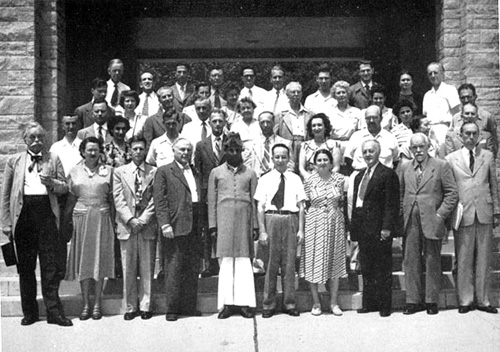Founded in the aftermath of World War II, the International Folk Music Council (now the International Council for Traditional Music) was a diverse group of scholars, musicians, and enthusiasts united toward an urgent goal: the preservation and revival of the world’s rapidly disappearing musical traditions. But beyond this general common cause, its members differed widely on many topics—not least, on the very definition of folk music.
Beginning with the IFMC’s first conference in 1948, where the German musicologist Walter Wiora discussed the distinction between Kategorie (category) and Wertidee (inspiring ideal), several of the Council’s members—most notably the English folklorist Maud Karpeles—debated the meanings of such terms as folk and the all-important qualifier authentic. The questions that were raised illuminate the beginnings of ethnomusicology and resonate with some of the current issues in the field.
This according to “Kategorie or Wertidee? The early years of the International Folk Music Council” by James R. Cowdery, an essay included in RILM’s own Music’s intellectual history.
Above, members of the IFMC at their meeting in Bloomington, Indiana, in 1950. Front and center: the Bengali poet and folklorist Jasīmauddīna, the U.S. ethnomusicologist George Herzog, and Dr. Karpeles.



